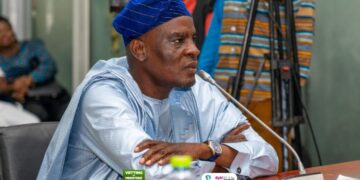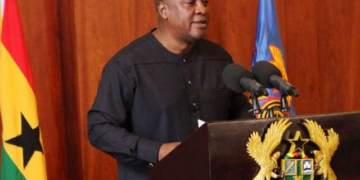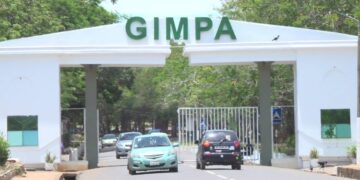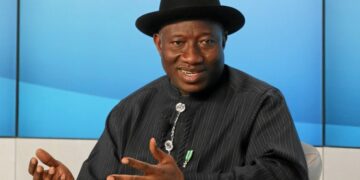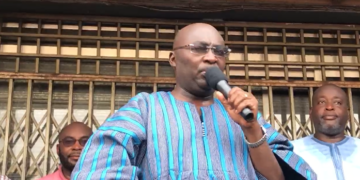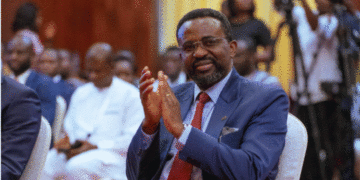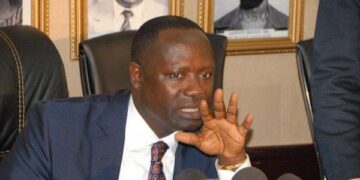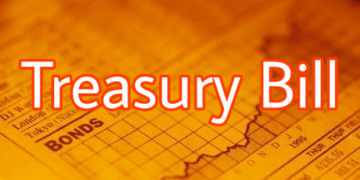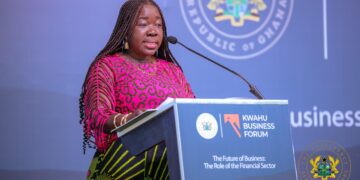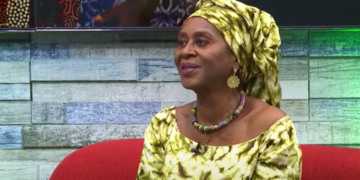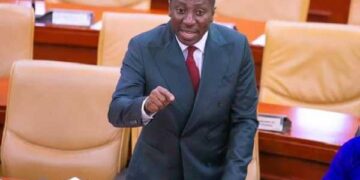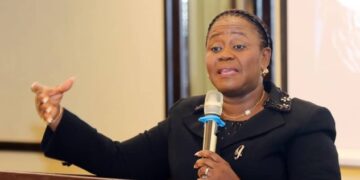Nhyiaeso Lawmaker, Dr Stephen Amoah has accused the opposition National Democratic Congress (NDC) of having an ulterior motive in the rejection of the E-levy proposal.
He said a claim by the NDC that the NPP will be unpopular if the policy is approved should not be trusted.
Speaking on the Key Points on TV3 Saturday March 5, he said “The NDC has said that when we pass the E-levy we will be unpopular and we will not win the elections, the speaker of Parliament Alban Bagbin said that. Why is the NDC not allowing us to pass it?”
“If you think this will make the NPP unpopular and and NDC will win the elections why are you not allowing us to pass it? He stressed.
He further indicated that the economy has been negatively impacted by the outbreak of the coronavirus pandemic because people were paid for not going to work, hotels and other businesses stopped operations thereby affecting the Gross Domestic Products (GDP).
“This is not a joke. Our fiscal space is messed up and you can’t blame the government,” he said.
Also speaking on the same platform, a Senior Advisor at the Africa Parliamentarians Network Against Corruption, Professor David Abdulai however, questioned the strategy adopted by the Finance Ministry regarding the proposed E-levy.
He said the failure of the Ministry to engage stakeholders prior to the introduction of the policy was wrong because that meant putting the cart before the horse.
In his view, the ongoing nationwide town hall meetings should have been done before the proposal was submitted to Parliament.
He said “The strategy of the Finance Ministry is wrong. What they did is to put the cart before the horse. This is not the time to now go around trying to hold town hall meetings, get buy-ins from Ghanaians. They should have done that much earlier before the bill was introduced in Parliament. So the pressure on the speaker, in my opinion, is misplaced.
“I am saying strategy-wise they should have done it much earlier and then you actually engage the NDC members in Parliament before you even bring it to the floor. Good luck to them but I don’t think the pressure is fair to the Speaker.
“The speaker will do his best but I think Ghanaians have already made it very clear, 91 per cent of the populace have made it clear they are not interested in the E-levy. The Majority leader mentioned a few days ago that they never expected such resistance even though they knew.”
The Majority Leader in Parliament, Osei Kyei-Mensah-Bonsu had earlier admitted that the ongoing nationwide consultation on the E-levy should have been done before the policy was announced in the 2022 budget statement.
He has assured Ghanaians that the government will do better next time when introducing a tax of this nature.
Speaking in an exclusive interview with TV3’s Benjamin Aidoo, the Suame lawmaker and leader of Government Business in Parliament said “You will see the Finance Minister going to organize townhall meetings in various regional capitals.
“Maybe, we underestimated the resistance. In any human institution people really will not come out openly to embrace the imposition of taxes, so we thought that yes, there will be some resistance it being a new levy or tax that we are going to introduce, but maybe we underestimated the strength of the resistance.
“Maybe, what we are doing now, I know some of my colleagues are out in various regions and constituencies trying to explain matters to their constituents, with hindsight maybe, this ought to have preceded the introduction of the E-levy. Perhaps, next time we will do better.
“But as I said we are still engaging and I want to believe that we will certainly bring this to successful completion.”
In rejecting the E-levy, the Minority Leader Haruna Iddrisu said the E-levy policy is a disincentive to the growth of digital economy.
To that end, he said, the Minority will not support it.
Speaking at a post budget workshop in Ho on Saturday November 20, he said “Mr Speaker, understandably, we see that the Minister of Finance seeks to introduce some measures including the now popularly declared e-levy or digital levy as some have quite named it.
“Mr Speaker, our concern is whether the e-levy itself is not and will not be a disincentive to the growth of digital economy in our country . We are convinced that the e-levy may as well even be a disincentive to investment and a disincentive to private sector development in our country. We in the minority may not and will not support government with the introduction of that particular e-levy . We are unable to build national consensus on that particular matter.”
Source: 3news.com
SHS 2 students to choose a foreign language in new curricula – Education Minister reveals
The Minister for Education, Haruna Iddrisu, has announced a key component of President John Mahama’s education vision, which aims to...
Read moreDetails
